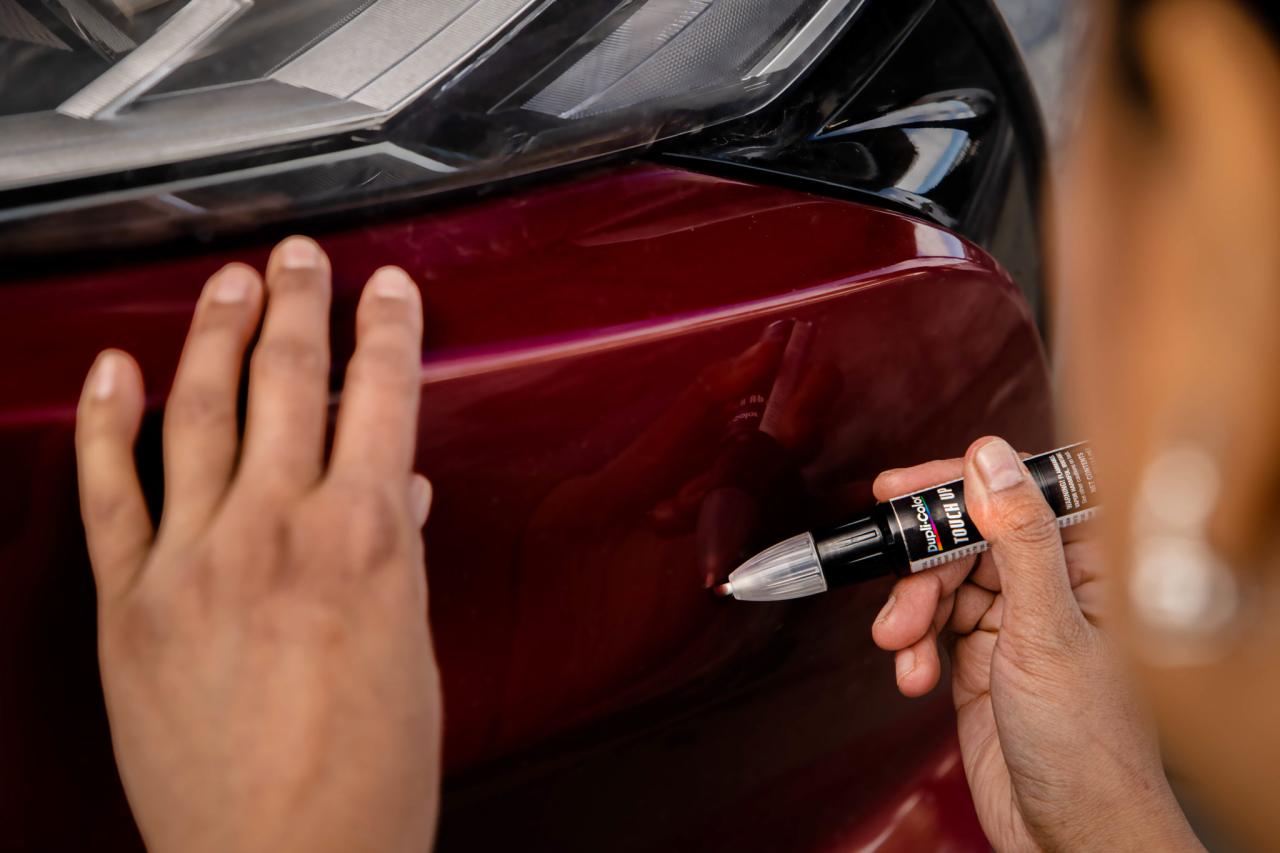
The Comprehensive Guide to Scratch Touch-Up Costs: A Detailed Analysis for Vehicle Owners
Introduction
Maintaining a vehicle’s pristine appearance is essential for enhancing its aesthetic appeal and preserving its value. Scratches, however, are an inevitable occurrence that can mar the paintwork and diminish the overall look of a car. Fortunately, scratch repair techniques have advanced significantly, offering cost-effective solutions to restore a vehicle’s finish. This article provides a comprehensive guide to scratch touch-up costs, empowering vehicle owners with the knowledge to make informed decisions.
Factors Influencing Scratch Touch-Up Costs
Numerous factors can influence the cost of scratch touch-ups, including:
- Size and Severity of Scratch: Smaller scratches that do not penetrate the basecoat require less material and labor to repair, resulting in lower costs. More severe scratches, such as deep gouges or scratches extending through multiple paint layers, require more extensive repairs and thus incur higher expenses.
- Location of Scratch: Scratches located on prominent areas of the vehicle, such as the hood or doors, typically require more meticulous and time-consuming repairs due to increased visibility. Conversely, scratches hidden in less noticeable areas, such as the undercarriage or trunk, may cost less to fix.
- Type of Vehicle: Luxury vehicles and high-end sports cars often have more expensive paint finishes that require specialized materials and techniques for touch-ups. As such, repair costs for these vehicles tend to be higher.
- Paint Color: Certain paint colors, such as metallic or pearlescent finishes, necessitate more complex touch-up processes and may incur additional charges.
- Materials and Equipment: The type of paint, primers, and clear coats used can impact the overall cost of the repair. Additionally, specialized tools and equipment, such as airbrushes or polishing machines, may add to the expense.
Average Scratch Touch-Up Costs
The cost of scratch touch-ups can vary significantly based on the factors discussed above. As a general estimate, the average costs for different scratch types are as follows:
- Minor Scratches: $100-$250
- Moderate Scratches: $250-$500
- Severe Scratches: $500-$1,000
It is important to note that these estimates are for professional scratch touch-ups performed by experienced technicians. Attempting to repair scratches on your own may save money in the short term, but it can lead to unsatisfactory results and potentially more expensive repairs in the future.
DIY Scratch Touch-Up Costs
For minor scratches, DIY touch-ups can be a cost-effective option. The materials required typically include rubbing compound, scratch filler, and touch-up paint. The estimated cost for DIY scratch touch-ups ranges from:
- Rubbing Compound: $10-$25
- Scratch Filler: $10-$20
- Touch-Up Paint: $20-$40
DIY touch-ups require patience and attention to detail to achieve acceptable results. It is crucial to follow the manufacturer’s instructions carefully and take the necessary precautions to prevent further damage to the paintwork.
Professional Scratch Touch-Up Costs
Professional scratch touch-ups provide the highest quality repairs with guaranteed results. Here is a breakdown of the cost components involved:
- Labor: $50-$100 per hour
- Materials: $20-$50 per scratch (on average)
- Equipment Rental: $10-$20 per day (if necessary)
The total cost of professional scratch touch-ups can vary significantly depending on the complexity of the repair and the skill level of the technician. However, the peace of mind and guaranteed quality of work are often worth the additional investment.
When to Consider Professional Scratch Touch-Ups
While DIY touch-ups may suffice for minor scratches, seeking professional assistance is highly recommended in the following scenarios:
- Scratches that penetrate the basecoat
- Scratches located in prominent areas of the vehicle
- Scratches on luxury vehicles or vehicles with complex paint finishes
- Multiple or extensive scratches
- Lack of experience in auto paint repair
Tips for Reducing Scratch Touch-Up Costs
- File an Insurance Claim: If the scratch was caused by an accident, you may be able to file an insurance claim to cover the repair costs.
- Negotiate with the Repair Shop: Discuss the cost of the repair with the technician and try to negotiate a lower price.
- Get Multiple Quotes: Obtain quotes from several repair shops to compare costs and find the best deal.
- Use a Credit Card with Cash Back Rewards: Pay for the repair using a credit card that offers cash back rewards or discounts on auto services.
Frequently Asked Questions
-
Q: Can I fix scratches myself?
A: Minor scratches can be repaired with DIY touch-up kits, but professional assistance is recommended for more severe scratches or those in prominent areas. -
Q: How long does it take to touch up a scratch?
A: The time required for a touch-up depends on the size and severity of the scratch. Minor scratches can be repaired within a few hours, while more extensive repairs may take a day or two. -
Q: Is it worth getting scratches touched up?
A: Yes, it is generally worth having scratches touched up to maintain the aesthetic appeal and value of your vehicle. Unrepaired scratches can accumulate and lead to more significant damage over time. -
Q: How can I prevent scratches from happening?
A: Some common ways to prevent scratches include using a car cover, washing and waxing your vehicle regularly, and avoiding driving in tight spaces or near potential hazards. -
Q: How do I know if a scratch has penetrated the basecoat?
A: If the scratch is deep enough to expose the bare metal or primer, it has penetrated the basecoat and requires more extensive repairs.
Conclusion
Understanding the factors influencing scratch touch-up costs and the available options for repair is essential for vehicle owners. By considering the severity of the scratches, the type of vehicle, and the desired quality of the repair, individuals can make informed decisions about the most appropriate and cost-effective approach to restoring their vehicle’s pristine finish.





